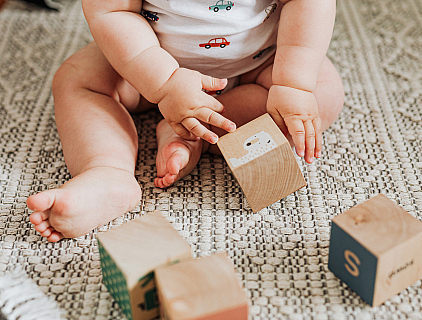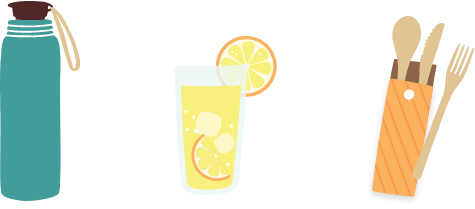Going plastic free, why small steps matter for your health
Guest Author | 21 June 2023
Dr Christos Symeonides, Paediatrician and Clinical Research Specialist at Minderoo Foundation, invites us all to rethink plastics and take steps to protect our health, particularly for the sake of children.
Going plastic free, why small steps matter for your health
I invite you to consider that, as well as being a planetary health disaster, plastic substances may also be entering your body and be a health hazard to you and your family.
It’s an uncomfortable truth. Virtually all plastic products contain a range of chemical additives that can leach out and enter food, drink, dust and air around us. Some of the smallest and most volatile chemicals can be absorbed through our skin or inhaled.
Many of these chemicals are known to be toxic, even at low levels. Babies in the womb and young children are at particularly high risk of plastic-related health effects from everyday use.
We know that early development is sensitive to hazardous chemicals. Children have unique exposure because they breathe more rapidly, are closer to accumulated chemicals in household dust and soil, and often put things in their mouths, including toys.
Plastic-associated chemical exposures are linked to increased risks of low birth weight, changes in genital development and appearance, neurodevelopmental impairment, respiratory illness (asthma and bronchitis) in children and premature puberty in girls. Early-life exposures are also associated with obesity and increased blood pressure in children.
Studies have also shown that exposure to some plastic chemicals is linked to poorer sperm health for men, and increased risk of miscarriage, endometriosis, and polycystic ovary syndrome for women. Adult exposure is also associated with obesity, type 2 diabetes, hypertension, cardiovascular disease, and certain cancers (including breast cancer and non-Hodgkin’s lymphoma).
Community health impacts
As well as being exposed to chemicals during everyday use of plastics, communities nearby to oil and gas developments, chemical refineries and plastic production factories are exposed to hazardous chemical pollutants released from these facilities into air, water, and soil. And we are all impacted by the carbon emissions from the use of fossil fuels to general plastics.
For example, compounds used or produced in oil and gas extraction by drilling and fracking—such as benzene, butadiene, and formaldehyde—are known to cause leukaemia and lymphoma at all ages, including children. Exposure to these during pregnancy and in early childhood is especially dangerous.
Daily choices to protect human health
As consumers, we can consider the true cost of our daily interactions with plastic. We can be curious and ask questions about where the plastic comes from, what is in it and where it goes.
Daily choices, such as shopping bags and coffee cups are easy swaps. We can bring our own natural cloth materials bags and stainless steel or glass cups. There are so many ways we can use less plastic, especially single-use items that quickly become waste.
Parents and carers with children or people planning to have children should be particularly aware of the plastic they use. This includes toys, synthetic clothing with plastic decorations, and any plastics a child might be exposed to. Many countries have banned toxic chemicals in toys, but countries regulate chemicals differently, and product labelling might not be sufficient to help us choose safer options.
The safest option is to ‘choose to refuse’ and reduce plastic use wherever you can. Small decisions can have a big impact in the years to come, and little things matter.
More information
A detailed report on the health and ocean impacts of plastics, was published in the Annals of Global Health, in March 2023. Authors comprised several experts from the Minderoo Foundation along with more than 40 other international experts.
A summary of health impacts is presented in the article Buy-now-pay-later: Hazards to human and planetary health from plastics production, use and waste, published in the Journal of Paediatrics and Child Health.



